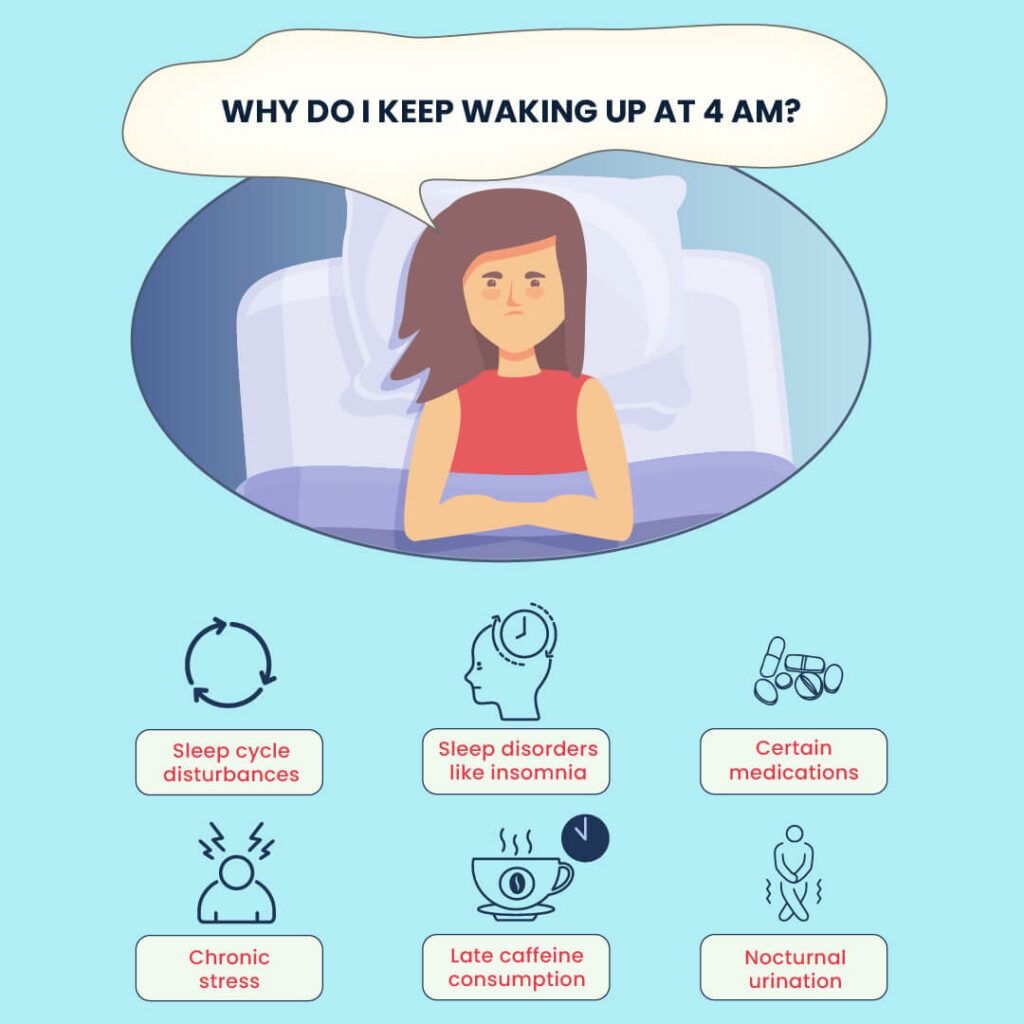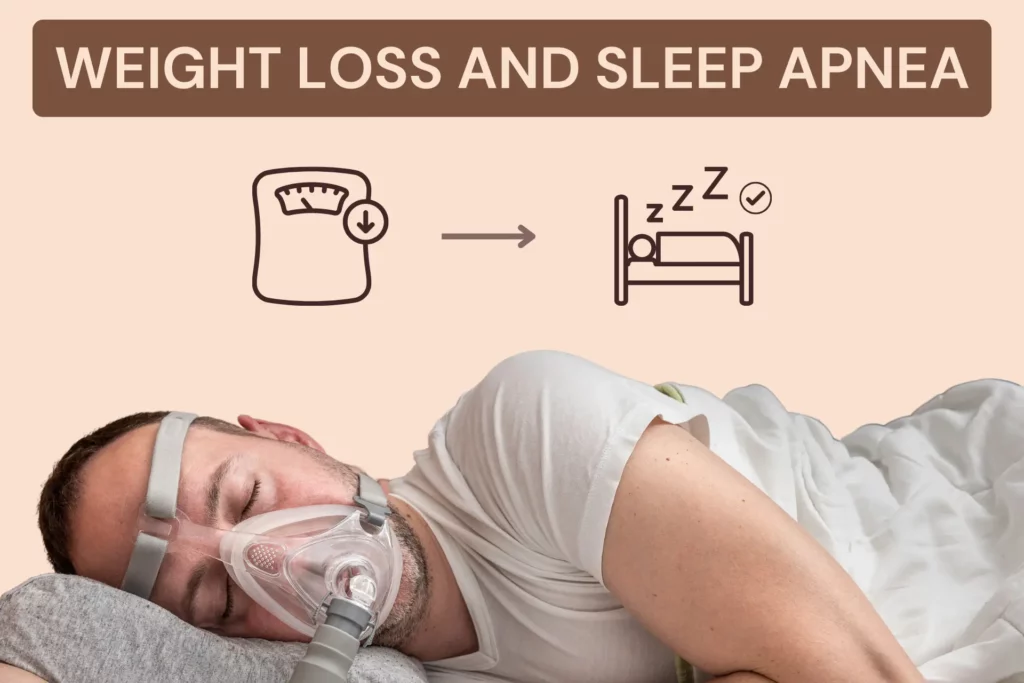Waking up at the same time every day? Consistent and prolonged awakenings can be due to factors other than your environment. Underlying sleep disorders, uncontrolled stress or anxiety, aging, and hormonal imbalances could result in waking up at the same time every day. We'll explore these and other potential causes, including genetics, and how to fix it.
Nocturnal awakenings, or waking up in the middle of the night, are relatively common. Many awakenings even go unnoticed as most people fall back asleep quickly.
According to the Sleep Foundation, more than 35% of people wake up during the night at least three times a week.
Environmental disturbances such as traffic noise, a partner snoring, room temperature changes, etc., can wake you up while you’re sleeping. However, in most cases people fall back asleep very quickly.
When awakenings occur very frequently or at the same time every day, or if you struggle to go back to sleep when awakened, it may indicate an underlying problem.
Why Do I Keep Waking Up At 4 AM?
Several factors can contribute to why you randomly wake up in the middle of the night.
Sleep Architecture
People go through four stages of sleep, with each cycle lasting between 90-120 minutes.
The third stage of sleep, called the slow-wave sleep, is the deepest stage. The fourth stage is characterized by rapid eye movement, commonly called REM sleep.
Sleep experts suggest that at this stage, brain activity is almost as high as it is when awake.
Awakenings typically happen after this, and when you fall back asleep, the cycle restarts.
Hence, if you typically sleep around the same time, these awakenings can happen at the same time.
Sleep Disorders
Several sleep disorders like insomnia, restless leg syndrome, and sleep apnea can result in difficulty falling asleep, difficulty staying asleep, or random sleep interruptions.
Uncontrolled Stress Or Anxiety
Stress and anxiety activate the body’s fight-or-flight response.
This heightened state of arousal can lead to increased heart rate and muscle tension, making it harder to stay asleep.
Stress can disrupt your circadian rhythm, leading to a pattern of waking up at the same time nightly.
Aging
As people age, their circadian rhythms often shift forward, leading to earlier bedtimes and wake times. This is known as advanced sleep phase syndrome.
Older adults experience more fragmented sleep, which contributes to increased awakenings throughout the night.
Further, age-related chronic conditions like arthritis, heart disease, and urinary incontinence can cause pain or discomfort, leading to more frequent awakenings.
Certain Medications
Some OTC and prescription medications are known to cause sleep disturbances.
The common ones include:
- Antidepressants are used to treat many mental health conditions, especially depression. Since they have a “stimulating” effect, they can make it harder to fall or stay asleep.
- Beta-blockers are a class of drugs used to treat hypertension. A side effect of these drugs is lowering the levels of melatonin, a hormone that promotes sleep. This can lead to nighttime awakenings.
- Steroids are used to treat inflammation inside the body. Some oral steroids, like prednisone, may stimulate the release of the stress hormone cortisol. This mimics the effects stress has on the body, leading to sleep disruptions.
- Diuretic drugs are used to treat hypertension by lowering sodium retention in the body. Sodium is excreted via urine, which means that those on diuretics tend to urinate more often. The resulting frequent awakenings can cause disturbed sleep.
Hormones
Hormonal changes associated with pregnancy, perimenopause, and menopause can interfere with good sleep.
For example, progesterone enhances the activity of a brain chemical called GABA, which promotes sedation and relaxation. Towards menopause, progesterone decreases, lowering GABA and leading to increased wakefulness.
Many of these factors contributing to nighttime awakenings can be alleviated or fixed with simple lifestyle changes.

Is It Normal To Wake Up At The Same Time Every Night?
Most of us wake up at least once every night but usually return to sleep immediately.
It’s a normal part of our natural sleep cycle.
With age, sleep patterns change, and the brain adapts.
Consult a doctor if you wake up several times at night and have sleep issues that regularly impact your day.
Genetic Causes Of Sleep Disturbances
Waking up at the same time every night or experiencing disturbed sleep can be a byproduct of many sleep aspects, including circadian rhythm and sleep disorders.
- Genetic influence on sleep patterns: A study suggests that variations in the DEC2 gene could lead to more frequent sleep disturbances.
- Sleep disorders and genetics: Familial advanced sleep phase syndrome has a vital genetic component. It is associated with earlier sleeping and waking times.
- Sleep apnea genetics: Obstructive sleep apnea, which causes individuals to wake up frequently during the night, can be influenced by genetics.
- Genetics of circadian rhythms: Variations in genes that control our circadian rhythms can disrupt sleep patterns, possibly causing someone to wake up at the same time each night.
No single gene directly determines your likelihood of waking up at 4 AM each night.
Your genetics may still contribute to this issue by influencing several aspects of sleep health.
Did You Know?
Sleep disturbances could strongly affect your well-being.
Diet and lifestyle matter, but it's essential to understand how genes factor in. Learn more:
No More Awakenings At 4 AM: Simple Tips To Follow
Here are a few easy-to-follow (some of them well-known) tips to improve your sleep:
- Establishing a consistent bedtime and wakeup time
- Avoiding stimulants like caffeine and screens close to bedtime
- Engaging in a relaxing routine - like a warm shower, mindfulness practices, or reading a book - close to bedtime
- Following breathing practices such as box breathing or the 4-7-8 technique
If your sleep disturbances are even more profound, try monitoring your sleep habits. Track your daily habits, changes in habits, and the corresponding sleep disturbances or lack thereof.
Once you identify the trigger, you can get management aids that can help you sleep better.
Finally, for problems like insomnia, apnea, hormonal changes, etc., consult a sleep specialist. They may recommend techniques like cognitive behavioral therapy or strategic light exposure to help you sleep better.
Frequently Asked Questions
Why Do I Wake Up At 4 AM With Anxiety?
At 4 AM, melatonin levels drop, and cortisol levels rise.
Since cortisol is the stress hormone, you may feel stressed or anxious at 4 AM.
Why Do I Wake Up Hot At 4 AM?
A warm bedroom environment is usually the culprit.
Sometimes, medications or medical conditions could affect your body’s temperature regulation.
Summary: Why Do I Keep Waking Up At 4 AM?
- Disturbed sleep is common and could be due to stress, health conditions, and medications.
- The hormones melatonin and cortisol regulate our sleep cycle.
- Rising cortisol levels around 3 or 4 AM could explain why you often wake up around the same time.
- Genes that influence your chronotype, sleep duration, sleep pattern, and risk for sleep disorders could play a role in your night awakenings.
- It is normal to wake up at the same time every night, provided there is no serious underlying cause, and you have no trouble falling back to sleep.
- Following a healthy sleep routine can prevent you from waking up at 4 AM every night.
Others Are Also Reading

Can Lack Of Sleep Cause Nausea? Know How To Prevent It

Could Weight Loss Be The Most Effective Treatment For Sleep Apnea?

Is Sleep Meditation For Anxiety Effective?




